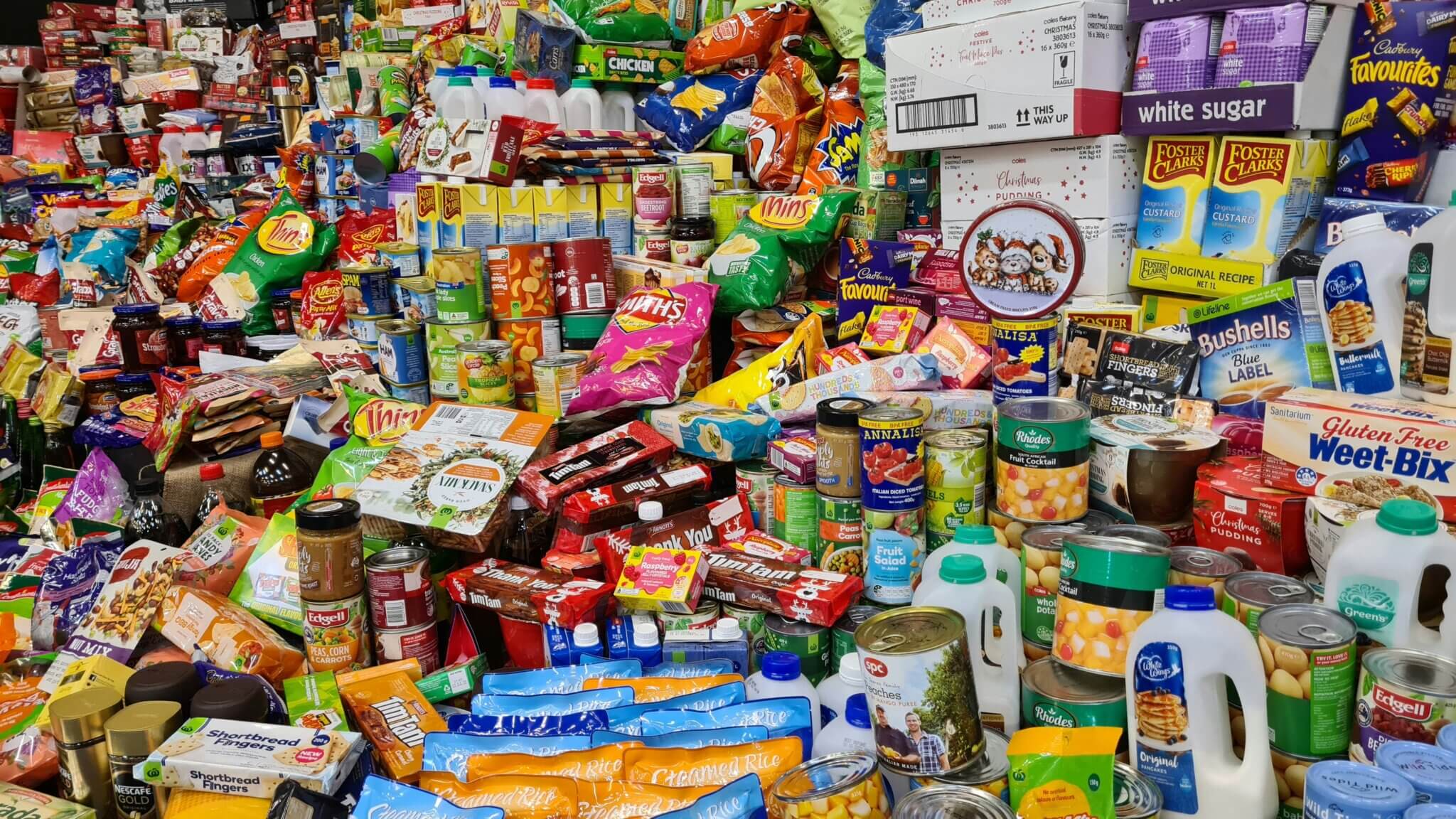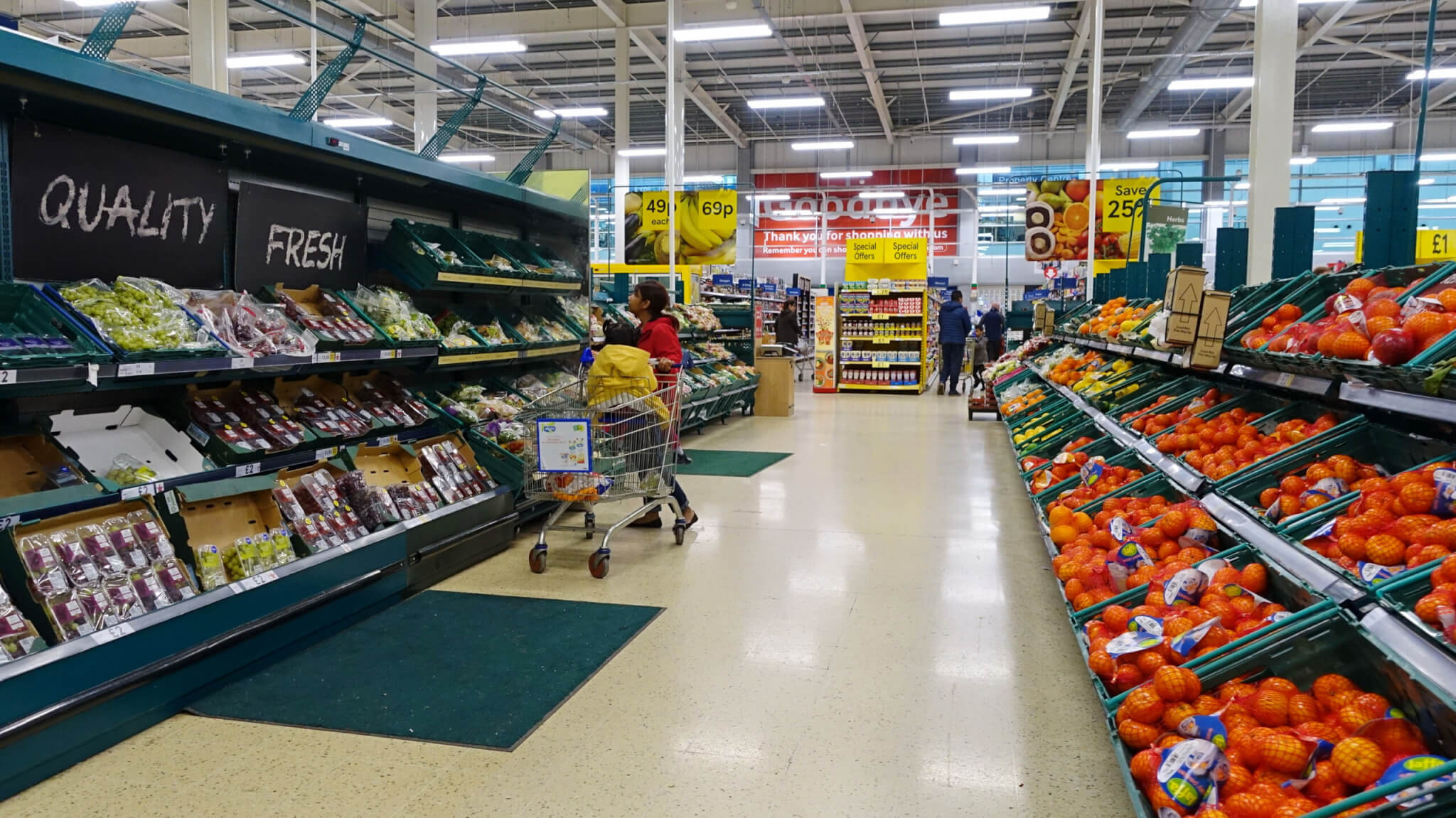The “staggering” global emissions of the top 10 food and drink manufacturers – including Nestlé, Unilever Plc, Pepsi Inc and The Coca-Cola Company – dwarf the international aviation industry and are higher than the UK’s total carbon footprint, according to a new report.
Collectively, the global GHG emissions of the food firms amounted to 477 million tonnes of carbon dioxide equivalent (tCO2e) in 2022, which is more than the international aviation industry’s emissions and the whole of the UK’s emissions during the same year, which were both recorded as 426 million tCO2e.
Worse still, these companies are responsible for the flood of nutrient-poor, ultra-processed foods linked to ill-health in the UK, previous investigations by the charity founded by Jamie Oliver have revealed.
An Oxford University study commissioned by Bite Back found that seven of the top ten food firms made more than two thirds of their food and drink sales in Britain from unhealthy products, in 2022. It found that they were responsible for more than 90 per cent of UK online advertising of food and drink products associated with childhood obesity, spending a total of £55 million on online adverts for chocolate, crisps, biscuits and ice cream.
“Ultimately, children’s health and planetary health are paying the price of a broken and unjust food system – and the burden is disproportionately felt by the most vulnerable in our society,” reveals the latest Bite Back report.
The carbon emissions of big food
Bite Back is most widely known for its campaigns on the negative impact the global food system is having on the health of young people. But, this year they decided to start looking into the sustainability efforts of the 10 biggest global food and drink businesses operating in the UK.
“These big corporate giants make laudable-sounding commitments on climate and it’s really hard for young people to know if they can trust them. We already know we can’t trust most of them with the claims they make about health and we wanted to know if we can believe what they’re saying about their planetary impact,” explains Bite Back’s director of policy and research, Caroline Cerny.
The charity analysed the publicly available emissions data of Coca-Cola, Danone, Ferrero, Kellogg, Kraft Heinz, Mars, Mondelez, Nestlé, PepsiCo, and Unilever. They examined how much each of the food firms plans to reduce their emissions by 2030, whether they have a net zero goal for 2050, and if the goals are ambitious enough and they are on track to meet them.
“What we found was really quite depressing”, says Cerny.
Ultimately, none of the UK’s food firms are doing enough to cut their emissions, concludes the report. Despite their ambitions, Ferrero, Kraft Heinz and PepsiCo actually increased their annual emissions in 2022, the time period analysed.
Coca-Cola is technically on track to reduce their 63 million tCO2 emissions by 11.7% by 2030, however their target is “highly unambitious” according to the report. Meanwhile, Nestlé has ambitious targets to reduce their emissions by 50%, but these stood at 116 million tCO2e in 2018 and were still 113 million tCO2e in 2022.
Unilever was ahead of its expected reduction of 4.7% by 2022, reporting emissions of 113 million tCO2e emissions, however this was according to limited and unverified data, and this year they have also been in the headlines for rolling back on their climate commitments.
Carbon accounting expert Will Richardson, founder of Green Element, says that whether companies are on track or not doesn’t tell the full story, because reducing emissions in a linear way is not necessarily how very large companies operate. They could be investing in the infrastructure and operations and so “front-loading” their reductions plan, with the biggest impacts seen at the end rather than the beginning of the journey.
“I’m not defending these companies though,” clarifies Richardson. “Regardless of whether they’re on track or not, these emissions are still incredibly high and reports like this help people realise that snacks and drinks that are high in sugar have high carbon footprints as well.”
The founder of the environmental management consultancy insists that emissions targets are important so that companies can be held accountable by their customers and by governments with more robust legislation.
These are the goals of the report. Cerny says: “If we’re going to achieve net zero, there needs to be a big shift in our food environment. Right now, a lot of the narrative is about how the individual should make better choices, but we live in an environment that pushes us towards unhealthy, unsustainable food, so there needs to be more scrutiny on the actions of these great big corporate giants making huge profits from ultra-processed foods.”
She adds: “I think scrutinising their targets is how we hold these food giants accountable. Unfortunately, the flip side is that setting far-away targets can be used as a marketing tool that helps them to greenwash and pretend that they’re more sustainable than they really are.”
The link between planetary health and human health
In the UK, ultra-processed foods now make up 50 per cent of diets for adults and 65 per cent for children, and it’s increasing [1]. A quick analysis of the foods produced by the companies featured in the report lands many firmly in the ultra-processed category of foods that we all know are not good for us – crisps, chocolates, sweets, ice-cream and fizzy drinks. Then there are those that belong in the ultra-processed category of foods that are typically marketed as ‘good’ or ‘better’ for us – probiotic drinks, low-fat yoghurts, cheese spreads, and cereals.
The issue is not just that these foods tend to be high in sugar and salt, it’s also that the processing and the additives all work together to create a product that’s typically high in energy (calories) and low in nutritional benefits, and this is impacting our health in ways we are only just starting to understand.
Studies have shown that people who eat a lot of ultra-processed food (UPF) typically eat up to 500 more calories a day than people who eat more whole foods [https://pubmed.ncbi.nlm.nih.gov/31269427/]. This is partly because of UPF’s addictive nature. Nutritionist Lucy Williamson (lwnutrition.co.uk) explains that when we eat ultra-processed food, we change the structure of it and one result of this is that the sugars are much easier for us to absorb. This sugar-hit feeds the reward centre in our brain, so it gives us immediate pleasure. It also leads to spikes in blood sugar levels. In response, our bodies produce insulin to regulate this, and the drop in blood sugar stimulates our appetite again. Feeling hungry once more, we reach for more ultra-processed food because we’re looking for that repeat ‘hit’ – and the cycle continues.
Williamson adds: “Our gut microbiome is also negatively impacted by ultra-processed foods, and as the gut is partly involved in regulating our appetite control and inflammatory pathways, this is another pathway by which ultra-processed foods lead to poor health outcomes.”
However, when we eat whole foods or minimally processed foods – such as fruits, vegetables, whole grains, and legumes – our bodies take longer to break down the food. This means we don’t have the highs followed by the lows.
The report also points out that the above whole foods do not rely on intensive sugar production, which is damaging to our soils, relies on pesticides, pollutes water sources and releases GHG emissions. Mass-produced ultra-processed foods are also reliant on staple crops such as wheat and vegetable oil, which encourages harmful monocropping practices that threatens biodiversity and nutrient diversity. Deforestation associated with a significant loss of primate populations in national parks and forest reserves is not only linked to palm oil, but to other ingredients common in ultra-processed foods such as cocoa in chocolate. Not to mention the plastic packaging that this type of food comes in that is polluting the planet and choking our seas. When it comes to UPFs, the ‘inconvenient truths’ far, far outweigh their initial convenience.
“We need these big businesses to take responsibility for the role they play in shaping people’s diets and helping us to move to more sustainable options, but they are not going to do that on their own. I think we all know that,” says Cerny. “Ultimately, we need government action. Regulation is the only lever that is going to make businesses move in the way that we need them to and reports like this shine a light on where we need action to be taken.”
Bite Back also gave each of the companies the chance to provide a written response to the research.
PepsiCo said: “We continue to reduce the carbon footprint of our operations. Our published climate data for 2023 demonstrates more progress”.
Danone said: “Globally we were among the first companies to have a 1.5°C aligned Science Based Target approved for Forest, Land and Agriculture… Working with our partners, we believe we can be successful in decarbonising while growing our business, supporting resilience and having a positive impact on the planet too.”
The other eight food giants didn’t respond.
References
[1]. Swinburn, B.A., et al. (2019), The Global Syndemic of Obesity, Undernutrition, and Climate Change: The Lancet Commission report, The Lancet, Volume 393, Issue 10173, 791–846 and Dr Sarah Berry, Kings College London, Panorama Ultra-Processed Food: A recipe for ill health?









I recommend reading Henry Dimbleby’s ‘Ravenous’. He goes into these issues in detail. Makes one feel better equipped to communicate with one’s MP (and others) – luckily, in this respect, ours in a GP (and no longer a Tory – hooray!).
The evidence that the damage these highly addictive products are doing to our health and environment is now pretty overwhelming. As usual the guilty corporates are using the well tested methods of dodgy science, flannel and lobbying to ensure political inaction. Each claim that it isn’t their products that are doing the damage. Really? Well maybe they should be required to prove it? Like any company introducing a potentially toxic product these corporations should do the science to prove they are safe, rather than us being required to prove they are not. Where is the duty of care principle? – ‘Under the Consumer Protection Act 1987, manufacturers and suppliers are held liable for harm caused by defective products, reflecting a form of duty of care to consumers.’ I think it safe to describe UPFs as pretty ‘defective’. Personally I’d increase the VAT on them to 100%, which would raise about £1bn, and use the revenues to help fund the NHS, install kitchens in schools (making ‘food’ a key element of a ‘life-skills’ part of the compulsory curriculum), fund the compulsory conversion of public procurement to good quality, sustainable food (it’s criminal that our children, sick and old folk get fed the cheapest of ingredients) and subsidise the production of more agroecologically produced whole food.
Further reading – Chris Van Tulleken’s ‘Ultra Processed People’, Kimberley Wilson’s ‘Unprocessed’ and Michael Moss’s ‘Hooked’.
It seems that UPF is not too good for planetary health or human health, I wonder why it is produced? Let me guess it makes someone a lot of money and they don’t care about much more.
I do wonder if the food industry will ever change. It has such overwhelming power over the consumer. One could argue that people have a choice, but how many people cook from scratch? How many families eat ‘proper’ food?
Mainly, they can’t be bothered; they don’t like cooking; they ‘can’t cook; they don’t have time, etc. The list of excuses goes on.
It is a sorry state of affairs.
As long as these ‘food’ giants keep churning out their rubbish, then I fear the nations health will only decline further.
I have read Ravenous and Ultra Processed People. They are excellent books and make you realise how damaging it all is.
I am lucky in that my town has a market three times a week where I buy local produce. Meat and vegetables are always available and seasonal. If not local, then I buy other UK or European.
I refuse anything from further afield.
There’s no profit in a raw carrot.
However, break it down into its constituent parts, extract key components, reconstitute it, fill it full of fillers and preservatives, cover it in addictive flavourings, dye it, deep fry it and sell a 25g packet for £1 and you’re laughing all the way to your offshore tax haven and the shareholders AGM. The NHS will pick up the tab.